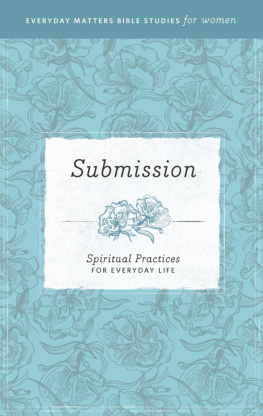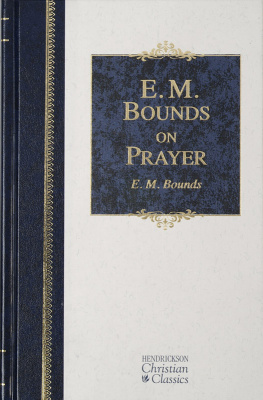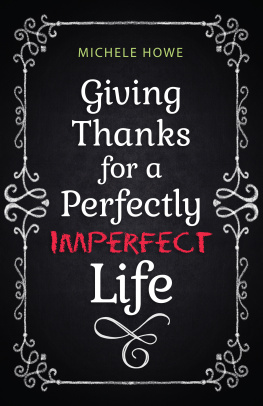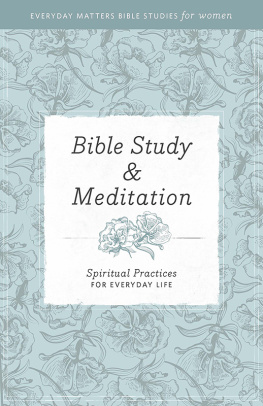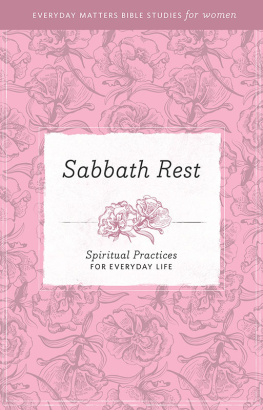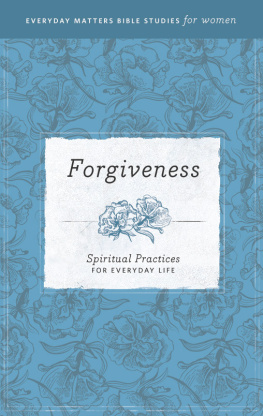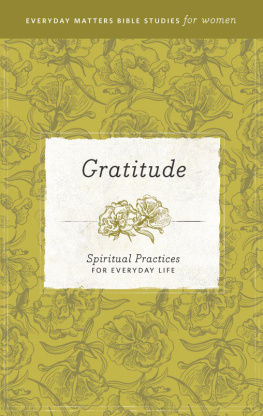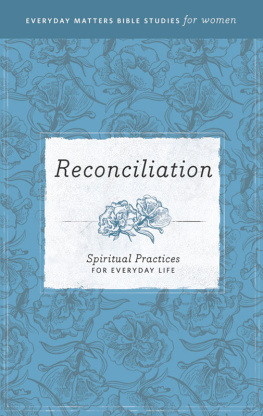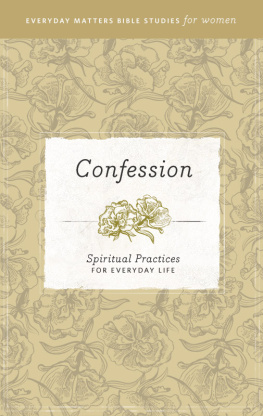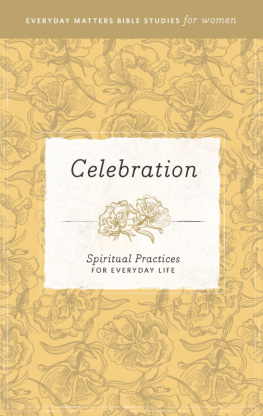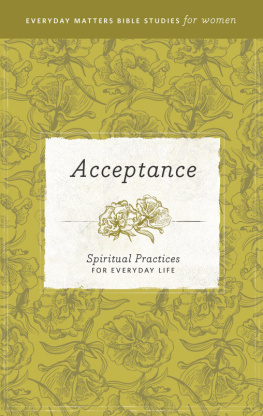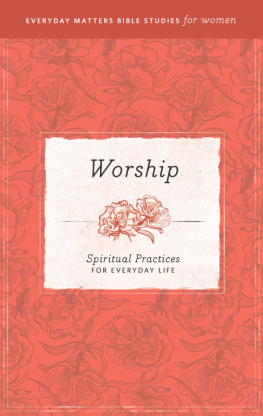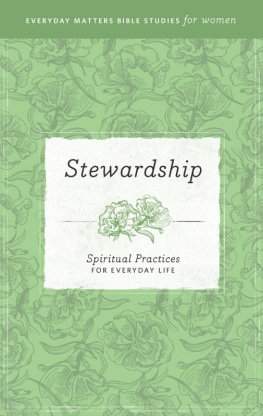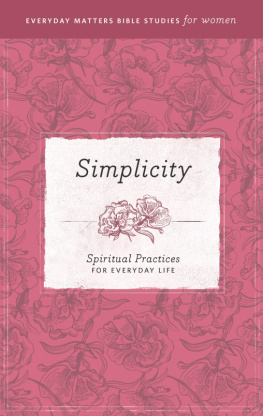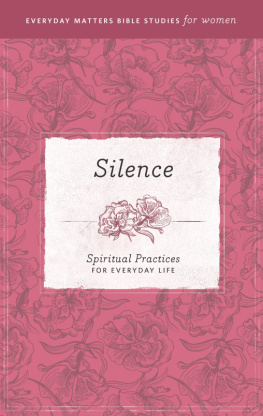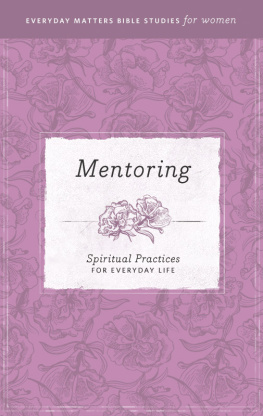All rights reserved. No part of this book may be reproduced or transmitted in any form or by any means, electronic or mechanical, including photocopying, recording, or by any information storage and retrieval system, without permission in writing from the publisher.
Unless otherwise indicated, all Scripture quotations are taken from the Holy Bible, New Living Translation, copyright 1996, 2004, 2007 by Tyndale House Foundation. Used by permission of Tyndale House Publishers, Inc., Carol Stream, Illinois 60188. All rights reserved.
Due to technical issues, this eBook may not contain all of the images or diagrams in the original print edition of the work. In addition, adapting the print edition to the eBook format may require some other layout and feature changes to be made.
Holy Habits
Spiritual Practices for Everyday Life
Everyday life today is busier and more distracting than it has ever been before. While cell phones and texting make it easier to keep track of children and each other, they also make it harder to get away from the demands that overwhelm us. Time, it seems, is a shrinking commodity. But God, the Creator of time, has given us the keys to leading a life that may be challenging but not overwhelming. In fact, he offers us tools to do what seems impossible and come away refreshed and renewed. These tools are called spiritual practices, or spiritual disciplines.
Spiritual practices are holy habits. They are rooted in Gods word, and they go back to creation itself. God has hardwired us to thrive when we obey him, even when it seems like his instructions defy our common sense. When we engage in the holy habits that God has ordained, time takes on a new dimension. What seems impossible is actually easy; its easy because we are tapping into Gods resources.
The holy habits that we call spiritual practices are all geared to position us in a place where we can allow the Holy Spirit to work in us and through us, to grant us power and strength to do the things we cant do on our own. They take us to a place where we can become intimate with God.
While holy habits and everyday life may sound like opposites, they really arent.
As you learn to incorporate spiritual practices into your life, youll find that everyday life is easier. At the same time, you will draw closer to God and come to a place where you can luxuriate in his rich blessings. Here is a simple example. Elizabeth Collings hated running household errands. Picking up dry cleaning, doing the grocery shopping, and chauffeuring her kids felt like a never-ending litany of menial chores. One day she had a simple realization that changed her life. That day she began to use her chore time as a time of prayer and fellowship with God.
Whenever Elizabeth walked the aisle of the supermarket, she prayed for each person who would eat the item of food she selected. On her way to pick up her children, she would lay their lives out before God, asking him to be there for them even when she couldnt. Each errand became an opportunity for fellowship with God. The chore that had been so tedious became a precious part of her routine that she cherished.
The purpose of these study guides is to help you use spiritual practices to make your own life richer, fuller, and deeper. The series includes twenty-four spiritual practices that are the building blocks of Christian spiritual formation. Each practice is a holy habit that has been modeled for us in the Bible. The practices are acceptance, Bible study and meditation, celebration, community, confession, contemplation, faith, fasting, forgiveness, gratitude, hospitality, justice, mentoring, outreach, prayer, reconciliation, Sabbath and rest, service, silence, simplicity, solitude, stewardship, submission, and worship.
As you move through the practices that you select, remember Christs promise in Matthew 11:2830:
Come to me, all of you who are weary and carry heavy burdens. Take my yoke upon you. Let me teach you, because I am humble and gentle at heart, and you will find rest for your souls. For my yoke is easy to bear, and the burden I give you is light.
Introduction
to the Practice of Submission
Submission is a challenging practiceone that is easily misunderstood and abused. In fact, submission sometimes gets a bad rap when it comes to understanding what, in Gods Kingdom, it is really all about. The word submit in the New Testament comes from the word meaning to yield. Submission is not a matter of being coerced. It is voluntary.
When you think about it, to exercise an attribute that God desires, particularly when it has the potential to be counterintuitive, suggests that this willingness to submit arises from a place of power we must choose to lay down. Not unlike Christ, when he laid down his glory to submit to the purposes of the Father and dwell with humanity during his short lifetime, our submission to God and to one another requires the same. Gods ways and purpose are often played out in a manner we cant always understand or even see. This requires not only faith on our part but also submissionan intentional laying aside, in faith, of our controland a willingness to abdicate our will to that of the Father, following in the footsteps of Jesus, and loving others as he has called us to do.
C H A P T E R 1

Life beyond Our Control
Trusting Gods Goodness
But Joseph replied, Dont be afraid of me. Am I God, that I can punish you?
You intended to harm me, but God intended it all for good. He brought me to this position so I could save the lives of many people. No, dont be afraid.
I will continue to take care of you and your children.
So he reassured them by speaking kindly to them.
Genesis 50:2021
For this study, read Genesis 50.
Author and speaker Nancy Guthrie highlights in her commentary about Joseph in the Everyday Matters Bible for Women that Joseph is a great example of submission in the midst of suffering. Not only was he forced to contend with a situation he did not ask for or deserve, his circumstances befell him by means of an act of betrayal by his own brothers, who ambushed him and then sold him into slavery. Guthrie writes, Joseph believed in Gods goodness, which is what we all must do. And we must realize that Gods goodness might include some things that we may not necessarily label as good. Yet Gods nature is the essence of goodness.
Sometimes this is hard to believe and causes many believers to pause and even stumble. No doubt Joseph spent many years wondering why his brothers had betrayed him and abandoned him. He most likely had to contend with bitterness and depression. Yet in the end, he slowly came to understand that the purposes of God are not always clear in the midst of the moment. He waited and trusted and submitted, knowing that Gods purpose always prevails. He was able to say to his brothers upon meeting them again many years later, You intended to harm me, but God intended it all for good.

